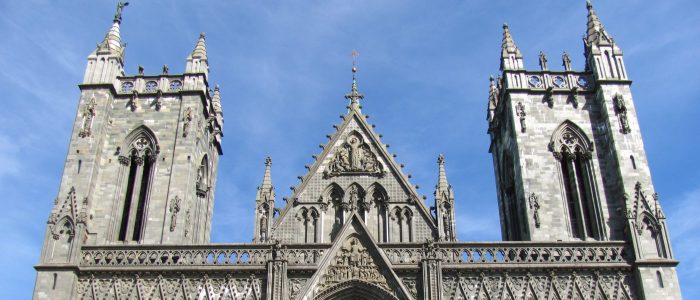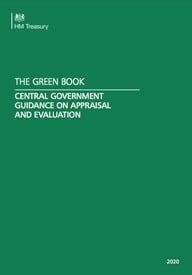Faith, Hoops and Charity and the role of faith groups in levelling up

In the first of a new series of blogs, Will Watt, Founder of State of Life and co-author of the House of Good report for the National Churches Trust and contributor to FaithAction’s “Building Back Better: The Role of Faith” Conference last year, looks at the valuable and important role faith groups can play in supporting the wellbeing of communities.
As we glimpse chinks of light at the end of the long COVID-19 tunnel, many of us face conflicting emotions. Joy as social distancing and the misery of isolation come to a close, but also profound anxiety about what a post-pandemic world will look like and how we might adapt to our place in it. The damage has been threefold: financial, mental and physical health have all been hugely impacted, and, as with all crises, suffering has been inequitable across socio-economic groups, with minorities seeming to bear the brunt. It is therefore fitting that our newest research into wellbeing suggests three low cost and accessible activities might be key to building back better economically, socially, and spiritually.
Faith-based activity undervalued
Traditional economics struggles with discussions about the role of places of worship and faith-based activity. Faith makes economists nervous as they fear it’s hard to attach financial and/or statistical data to a belief. Wellbeing economics changes this; State of Life has been able to demonstrate that sport and volunteering produce massive, positive economic effects. And in 2021 we have demonstrated the same for attending a place of worship and being part of a faith-based community. And this is not some shaky conviction on our part, but rigorous and compelling statistical evidence.
And this is now important – the bible of economic value in the UK says so.

All religions have their sacred texts. In government policy circles it’s called the Green Book. It is, if you will, the bible of how to appraise and evaluate policy and practise in terms of value to the economy. And in 2018 there was a big, new focus on wellbeing and social value, with page 5 of the 2018 edition stating that:
2.3 Economic appraisal is based on the principles of welfare economics – that is, how the government can improve social welfare or wellbeing, referred to in the Green Book as social value.
This puts wellbeing and social value at the heart of how to govern. And the 2020 revision maintained this focus on wellbeing alongside a need to level up. This puts faith and the role of churches in society in a very important position.
House of Good – the church and state are inextricably connected
In 2020, State of Life and the National Churches Trust published ‘House of Good’. This was a groundbreaking look at the economic value of the church to communities. We found that churches are providing vital social care – after school care, mental health and drug and alcohol support services – and also essential services where the state is failing to provide the basics of life, e.g. churches run or set up almost all food banks in the UK.
And the weekly rhythm of church is the optimum rhythm of life
Wellbeing analysis often risks stating the blindingly obvious, which in turn can lead to the simple solution being ignored in favour of fashionable or exciting sounding innovations. This is a mistake – the fundamental answers to our health and wellbeing questions have – like the church – been around for centuries.
State of Life’s latest research ‘Faith, Hoops and Charity’ looks at three such activities – volunteering, physical activity or sport, and attending worship. Among other things, we conclude that faith-based activity is a hugely overlooked source of wellbeing for many across the UK, and that there is a large additive impact of engaging in all three pursuits. Crucially, the data shows how to prioritise time and money by prescribing an optimum ‘dose’.
It’s no great surprise that weekly is the optimum ‘dosage’. The seven day week is deeply embedded in the human experience; it’s been with us for 4,000 years, a creation of the Babylonian empire. It’s a cycle we all know and understand. We also find that only full time work and marriage yield comparably high positive health and wellbeing impacts as weekly Faith, Hoops and Charity.
Here then are massive benefits that are accessible to all, and on offer for free or at relatively low cost. And looked at from a more strategic, policy perspective, the existing ‘place-based’ infrastructure and social networks around these activities (churches, clubs, groups) are fundamental to happier, healthier individuals and communities.
To truly ‘level up’ we need a new interpretation of the relationship between church, community and the state
We have written previously that state money given to sport has a much higher return on investment when directed to the lowest socio-economic groups in the most deprived areas of the country. It would seem to follow that the same would be true of investment in faith-based infrastructure and institutions. In ‘House of Good’ we described churches as a ready-made distribution network for social services and care in the community. In the post-pandemic world these services are needed more than ever, and we believe that investing in churches – and other faith based organisations – as providers of social care must now be considered a pillar of any building back better strategy.
To read the full report “Faith, Hoops and Charity” and find out more about how the value of faith-based activity has been calculated, visit the State of Life website.
Photo by Marian Florinel Condruz on Unsplash


